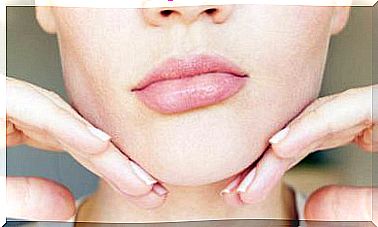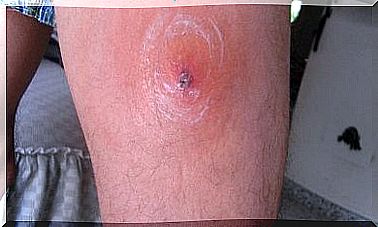Mood Disorders: What You Need To Know

Mood disorders affect a considerable percentage of the population. Furthermore, their incidence is expected to increase over the next 20 years.
The lifestyle of our time presupposes uncertainty, social and work pressure, so it negatively affects the attempt to maintain a positive state of mind, or at least hinders it.
Conflicts of the mind can affect some lifestyle habits, health and personal well-being. They can even trigger other psychic pathologies and organic alterations.
Anxiety, one of the mood disorders par excellence
Anxiety is a wake-up call that produces a mental and physical response in view of a danger. Our body reacts through different systems to stimuli that it perceives as threatening.
Yet when these reactions are produced with too much intensity or are prolonged over time, they become a pathology.
Depressive forms
Depression is a disease that depends on many factors, and in the course of which there is a disturbance of the mood that lasts over time. Sufferers are unable to feel positive emotions or enjoy anything.
The most typical symptoms of depression include a lack of energy and vitality, as well as a loss of interest. One can even feel incapable in various areas of daily life. Depending on the intensity of the symptoms, one can speak of mild, moderate or severe depression.
- Mild depression : The affected person can carry out daily activities normally. However, he has a depressed mood for most of the day. He usually loses interest or the ability to have fun.
- Moderate depression : in these cases the symptoms are aggravated by hindering daily activities. It presents with loss of confidence and self-esteem, accompanied by feelings of inferiority. Thoughts of death or suicide, decreased ability to concentrate, lack of decision making and sleep disturbances may also arise.
- Severe depression: in these cases the person must always be checked.

How to treat mood disorders
The joint action of different therapies allows to develop a combination of treatments. Specialists, in fact, recommend combining pharmacological treatments with psychological therapies.
Pharmacological treatment
The choice of different drugs for each case confirms the effectiveness of the different active ingredients in comparison to possible side effects. If you suffer from mood disorders, remember that it is important to take medications according to medical prescriptions.
It can take between 2 and 4 weeks for you to notice any improvement. Many patients who have not been warned of this issue drop out of treatment without giving it time to take effect. The most common side effects of these drugs are:
- Headache
- Nausea
- Insomnia
- Dry mouth
- Constipation and difficulty urinating
- Blurred vision
- Drowsiness
Food hygiene recommendations
Correct eating habits can improve the effectiveness of drug treatment and prevent relapses. It is advisable to do physical activity and to maintain an active lifestyle, respecting a number of hours that also includes the right rest. Try to keep busy – it will help you avoid negative thoughts.
Following a balanced and appropriate diet, with a high content of fruit and vegetables, allows you to find relief from the constipation associated with the treatments. It is also essential to avoid alcohol consumption, as it increases the unwanted effects of drugs and reduces their effectiveness.

Psychological treatment of mood disorders
Psychotherapy offers resources, knowledge and support to the patient suffering from mood disorders. These therapies are meant to stimulate change . We work on self-esteem and control of emotional predisposition.
Mood disorders are treatable
The mood can be normal, elevated or depressed. The person suffering from mood disorders loses the feeling of control over their emotions and feels general malaise. In these cases, it is recommended to combine pharmacological and psychological treatment, together with measures relating to good food hygiene.









